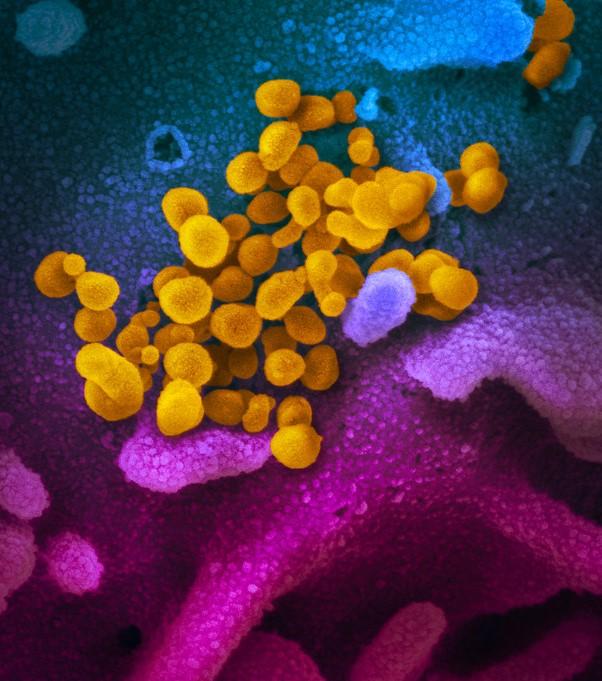More states are reporting increased B117 variant cases, the variant first identified in the United Kingdom that is roughly 50% more transmissible than the original COVID-19 strain.
Today Minnesota confirmed the variant is now widespread in the state, accounting for more than half of the viruses in a sample selected for genetic sequencing. So far the state has detected 479 cases caused by B117.
Across the United States, the Centers for Disease Control and Prevention (CDC) has tracked 7,501 B117 cases in 51 jurisdictions; that number is likely a gross underestimate, as it's based only on a samples selected for genomic surveillance.
Officials from the White House and CDC have said in recent weeks that B117 likely represents 30% of COVID-19 cases in the country, and it will become the dominant strain by April.
In another state that has recently reported increased B117 cases, Michigan reported its highest single-day positivity rate of 2021 on Monday, along with 3,579 new COVID-19 cases, according to mlive.
The state is averaging 2,938 new cases per day.
Pandemic progress stalling
Today during a White House COVID-19 briefing, CDC Director Rochelle Walensky, MD, MPH, said she was worried about the latest data, which showed a 3% increase in COVID-19 cases across the country, averaging 55,000 new cases per day.
"I continue to be worried about the latest data and the apparent stall in the pandemic," She said. "If we choose to invest in prevention right now, we will come out of this faster and with fewer lives lost."
Though Walensky said she is optimistic about the pace of US vaccinations, she worries about images from spring break in Florida that show young people gathered on beaches. "These people are likely not vaccinated," she said. The country is vaccinating, however, 16 million to 20 million people per week.
The United States reported 52,878 new COVID-19 cases yesterday and 894 deaths, according to the Johns Hopkins COVID-19 tracker. In total, almost 30 million Americans have had confirmed infection with COVID-19, including 544,883 deaths.
More states open as vaccination rates climb
A new survey from Carnegie Mellon University shows that the percentage of Americans who are vaccinated or willing to get vaccinated rose from 72% to 77% from January to February, while vaccine hesitancy remained stable at 23%. The report includes responses from more than 1.9 million Americans.
Seven out of 10 vaccine-hesitant adults said they were concerned about side effects. Healthcare workers who were vaccine hesitant (15% of health workers polled) said they were mostly concerned about side effects.
The desire to get vaccinated comes as more states loosen pandemic restrictions that have been in place for 1 year.
CNN reports that Indiana and Virginia are the latest states to make significant moves to reopen. Indiana Gov. Eric Holcomb said yesterday that, starting Apr 6, the state's mask mandate will become an advisory, and decisions about venue capacity will be in the hands of local officials.
Virginia Gov. Ralph Northam said that indoor and outdoor gathering limits will increase starting Apr 1.
Study highlights disparities
A study today in Morbidity and Mortality Weekly Report today adds to the body of evidence spotlighting racial disparities in the pandemic in the United States. The study looked at data from all 50 states collected from April through December 2020, and it showed that counties with large Asian and Black populations were among the first to report high virus incidence.
From Apr 1 through 14, 11.4% of counties reported high COVID-19 incidence, including 28.7% and 27.9% of counties with large Asian and Black populations, respectively, the authors wrote.
From August 5 through 18, the percentage of counties with high incidence was 64.7%, including 92.4% and 74.5% of counties with large Black and Hispanic populations, respectively. By December 9 through 22, 99.1% of counties in the country reported high incidence of COVID-19.
"Examining COVID-19 incidence in conjunction with race and ethnicity at the county level can identify areas where racial and ethnic minority groups might be experiencing high potential COVID-19 impact," the authors said.
Phase 1 trial of antiviral begins
Pfizer announced yesterday that it has begun a phase 1 clinical study of an oral antiviral therapeutic for COVID. The candidate, a SARS-CoV-2 protease inhibitor, has shown potent in vitro activity against the virus.
"Tackling the COVID-19 pandemic requires both prevention via vaccine and targeted treatment for those who contract the virus. Given the way that SARS-CoV-2 is mutating and the continued global impact of COVID-19, it appears likely that it will be critical to have access to therapeutic options both now and beyond the pandemic," said Mikael Dolsten, MD, PhD, Pfizer chief scientific officer, in a statement.
The antiviral, a protease inhibitor, is meant to be taken at the first sign of infection to prevent significant clinical symptoms.




















